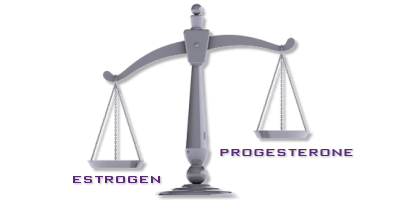PROLACTIN
Prolactin is also known as the luteotropic hormone, which causes milk to be produced, it is also a protein. It is mainly produced in the pituitary gland.
The following stimulates the production of prolactin:
- stress
- low dopamine
- low tyrosine
- lack of protein in the diet
- estrogen
- contraceptives and HRT
- antipsychotics
- tranquillisers
- some cancer drugs
- gastro-oesophageal reflux drugs
- some anti-hypertensive drugs
- sleep agents
- drugs that will deplete dopamine
- drugs used to promote hair growth in men i.e. Minoxidil
- some SSRI and SNRI medications
- live, kidney, ovaries and thyroid disease
- prolactinoma (a pituitary tumour)
- excess thyrotropin releasing hormone (TRH)
- pregnancy and lactation
- some sexual disorders
- polycystic ovary syndrome (PCOS)
- phytoestrogens
Specialised cells called lactotrophs are the major source of prolactin and are found in the anterior pituitary. Prolactin is also synthesised and secreted by other tissues such as immune cells, neuronal and endothelial.
Breasts in both males and females are affected by prolactin. Also affected are:
- ovaries
- testes
- pituitary
- heart
- lungs
- thymus
- spleen
- liver
- pancreas
- kidneys
- adrenal glands
- uterus
- skeletal muscle
- skin
- certain areas of the central nervous system
If you have any questions about Natpro Progesterone Cream
Milk production is stimulated by prolactin after giving birth. If the prolactin level is too high it can cause galactorrhoea, or a spontaneous flow of milk in both male and female breasts which is un-associated with childbirth.
Several cells in the pituitary are affected as estrogen increases mitotic and secretory activity especially the proliferation of lactotraphs or prolactin cells.
Excess estrogen is so difficult to control as there are well over 100 estrogen mimics found in our environment today. It's in our food, water, air and skin care products, especially sunscreens. Many foods that we eat i.e. grains and legumes contain high amounts of phytoestrogens, even Contraceptives and HRT contain estrogen.
High prolactin levels in both men and women, inhibits the secretion of follicle stimulating hormone (FSH) and gonadotrapic releasing hormone (GnRH) which leads to hyprogonadism. In women this suppresses the ovulatory cycle causing irregular periods, anovulation and problems conceiving. It can also cause a loss of libido and breast tenderness, menstruation may disappear altogether in some women. In men, infertility, erectile dysfunction and decreased libido would be most common. The neurotransmitter dopamine is responsible for sexual arousal, prolactin inhibits the secretion of dopamine causing a drop in libido. High levels of prolactin often have an unexplained cause and are overlooked. Example, a man who drinks a lot of soy milk a day can cause a decrease in libido and erectile dysfunction as the phytoestrogens in the soy milk will increase his estrogen levels 4 fold.
Stress causes dopamine levels to drop, causing prolactin to rise. Dopamine is essential for motivation and vitality, it helps with concentration and focus. A lack of dopamine leads to "ADD' type symptoms. A drop in dopamine levels can also cause depression.
If there is a lack of protein in the diet it leads to a deficiency in tyrosine which is an amino acid. Tyrosine is the precursor to dopamine, a drop in both tyrosine and dopamine stimulates prolactin release. Tyrosine is important, it is the precursor to the neurotransmitter dopamine, and the stress hormones, adrenaline and oradrenaline. It is also the precursor to T3 triiodothyronine) and T4 (thyroxine) thyroid hormones also melanin, the pigment found in skin and hair. Tyrosine helps with stress, emotional trauma, fatigue, sleep deprivation. It aids memory, cognition and physical performance.
When there is sufficient dopamine it suppresses prolactin production. Dopamine is synthesised in the adrenals and nervous tissues from tyrosine. Not only is it the precursor to dopamine, but the stress hormones adrenaline and noradrenaline which are both synthesised from dopamine. When stressed both these hormones are released, the more stress, the lower dopamine drops. Vitamin D3 increases the release of dopamine.
When pregnant, women produce high levels of progesterone which prevents the release of prolactin. Progesterone levels drop during childbirth and signals the release of prolactin and lactogenesis. At this point the foetus absorbs prolactin from the mother relating to male and female babies sometimes secreting milk from their mother, this is commonly known as Witch's milk and is short lived.
If hyperprolactemia is diagnosed, progesterone suppresses it safely in men and women. Progesterone is also responsible for the increase in libido but not testosterone.
Natural Treatment
Before using progesterone for the first time, please read Estrogen Dominance and How to use Progesterone Cream.
- women should use between 100-200mg per day, more maybe needed in severe cases
- men should use between 10-100mg per day, more maybe needed in severe cases
- tyrosine should be considered as this counters the release of prolactin, increases dopamine levels which increases libido if the drop is caused by excess prolactin. Start by using 500mg in the morning, increasing by
the same amount until optimum dose is reached. CAUTION: symptoms return if excess is taken - vitamin B3 100mg per day
- folic acid 300mcg per day
- vitamin D3 5000iu's per day, more if extremely deficient
Please have a Vitamin D3 test done, minimum daily dose should be 5000iu's per day.
For more informaiton on vitamin D3 levels, test kits etc
For prolactin levels, please see Hormone Testing.
Medical Treatment
- Bromocriptine is given to reduce and control prolactin levels but it does not cure it, side effects are hectic.

